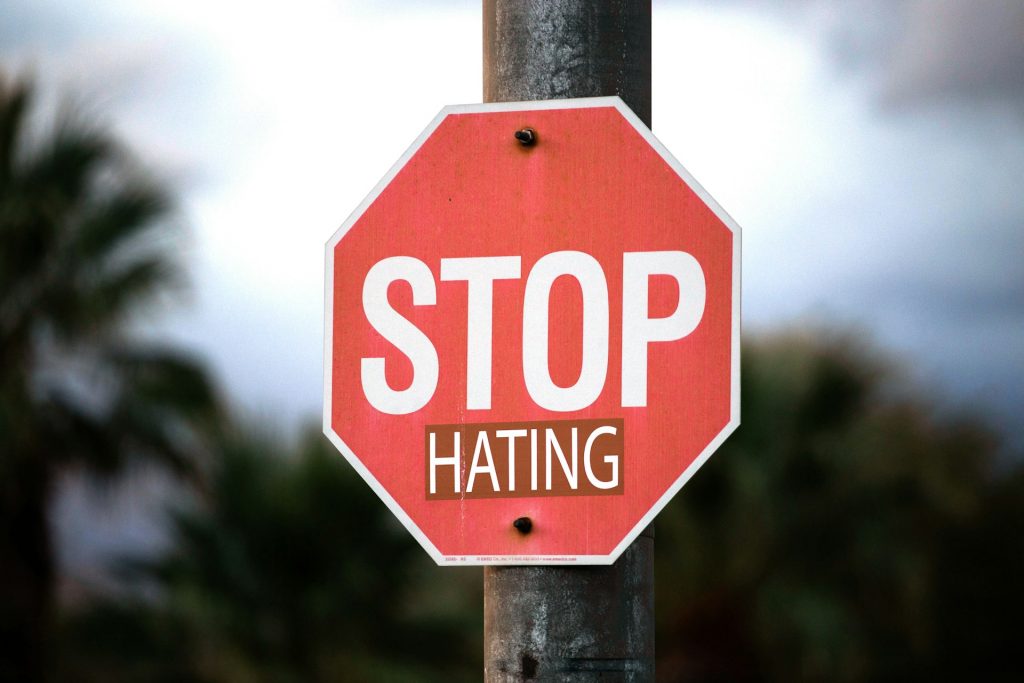In his song “Tethered,” Jason Gray sings the lyrics, “I didn’t cry for help because I didn’t like myself enough to open the door to my own prison cell.”
The first time I heard those lyrics, I remember feeling like I’d been hit by a bus. How many times had my self-hatred prevented me from trying to find something better in life?
Ten years ago, I hated myself. You may read that and think I just didn’t like myself very much. However, I cannot overstate how much I hated myself and how that self-hatred had simmered in me for most of my life.
In fact, I began seeing a counselor. When filling out paperwork, I had to answer a question about what I want to get out of counseling. I just wrote, “I don’t want to hate myself anymore.”
It’s been an incredibly long process that has taken years of unlearning harmful thought patterns. Although I’m finally in a place where I actually like myself, there is still much work to be done.
Self-Hatred and Humility Aren’t the Same Thing
So why write about this here?
One of the things that kept me in bondage to my own self-hatred was my mistaken belief that I was just being humble. And since the Bible tells us to be humble, my self-hatred had to be right, right?
Wrong.
While pride is wrong, self-hatred is not the antidote. True humility occurs when we see ourselves honestly for who we are, especially who we are compared to our God. Self-hatred is a distortion of humility, one that makes us feel righteous in our hatred of ourselves while slowly killing us from the inside.
3 Reasons to Stop Indulging in Self-Hatred
You may have read the header above and wondered why I would think “indulging” and “self-hatred” belong in the same sentence. Trust me: as someone who has spent a lot of time hating herself, there is a lot of time indulging in the feeling and piling onto the list of reasons why it’s right.
The following are three reasons (based in Scripture and Christian belief) we all need to take the time to un-learn our habits of self-hatred.
1. God loves us (John 3:16).
This is the biggest and most important point. God loves us enough that Jesus came to save us from our sins. God wants nothing more than to have a healthy relationship with us.
When we hate ourselves, we’re essentially saying that God is wrong to love us. That may not be your intent. It certainly wasn’t mine. But as I realized just how much God loves me, it was nearly impossible to hold onto my self-hatred anymore.
2. It is wrong to lie (Exodus 20:16; Proverbs 13:5).
At my lowest and most legalistic, the idea that self-hatred was a form of falsehood was particularly helpful in breaking through to me.
When pride puffs us up, it tells us we are better than we really are. When self-hatred takes control, it tells us we are worse. Neither tells the truth.
Let me give you a personal example. When I’m struggling with self-hatred, I often say to myself, “I’m a terrible person and my loved ones deserve better.” While there are certainly places where I continue to grow and improve, I know that I’m not an objectively terrible person. Painting myself as worse than I am doesn’t help anyone.
3. We are called to confidence in Christ (Hebrews 10:19-23).
Self-hatred prevents us from confidently entering the presence of God. At its most extreme, self-hatred can prevent us from seeking that relationship. When we think we’re too far gone for even God to redeem, we may even run the other way.
In Hebrews, we’re reminded that because of what Jesus has done for us, we can enter the sanctuary with confidence. What Christ has done for us is enough. We aren’t just forgiven, but purified from our sin. Even if we did have legitimate reasons to hate ourselves, those are washed away by the blood of Christ.
Conclusion
Self-hatred isn’t humility, no matter what our inner critics may say.
If no one has ever told you this, let me be the first: it’s okay to love yourself. It’s okay to have an appropriate amount of confidence and self-love. The God who loves you lavishly doesn’t want you to wallow in the mud of your shame. Christ calls you to put on the pristine robes of redemption, living out your days as his co-heir.
You are loved. It’s worth learning to love yourself, too.

